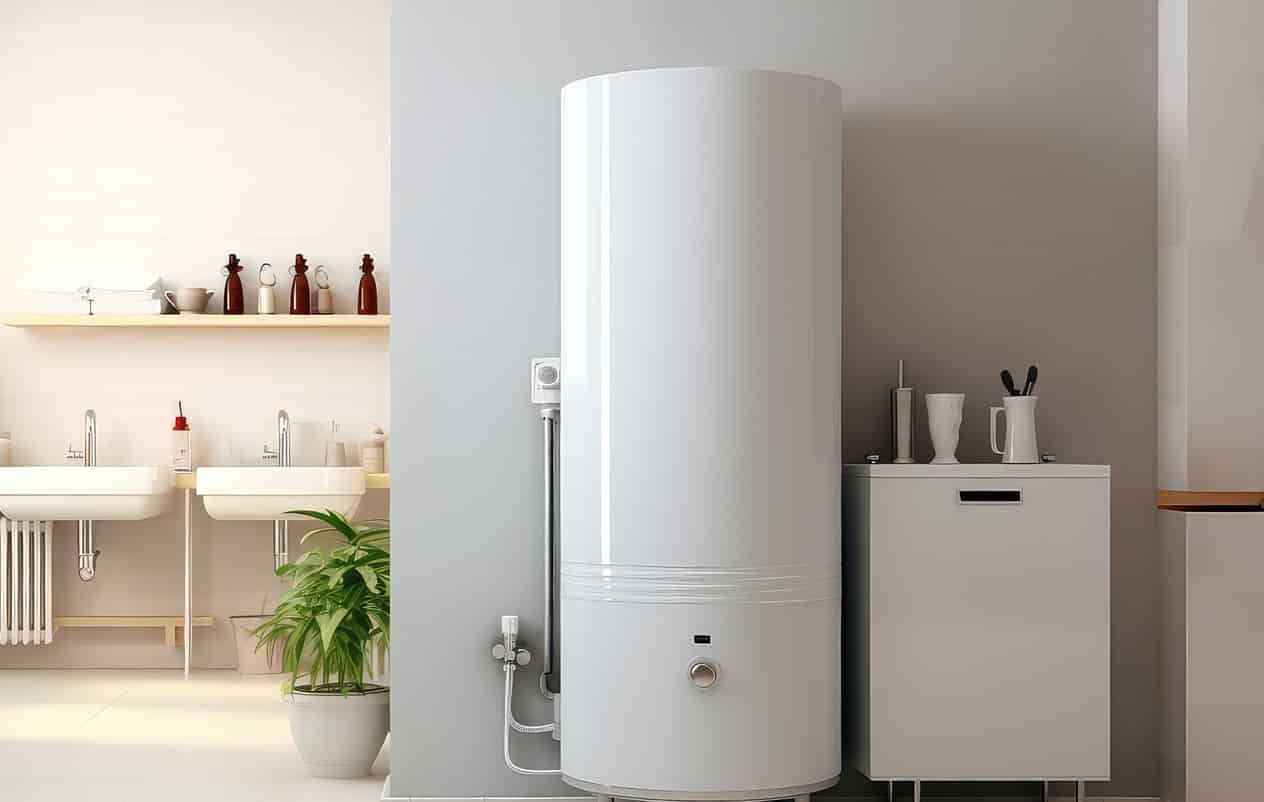 Boiler Upgrade Scheme 2024: Key Changes & How to Apply
Boiler Upgrade Scheme 2024: Key Changes & How to Apply

The UK’s journey towards a greener future includes a shift in how we heat our homes. The Boiler Upgrade Scheme 2024 stands as a beacon for homeowners in England and Wales, providing financial incentives to embrace eco-friendly heating solutions. Let’s explore what the Boiler Upgrade Scheme 2024 brings and why it matters for you. This updated scheme promises exciting new developments, so understanding the Boiler Upgrade Scheme 2024 is crucial for anyone considering switching from a traditional boiler system.
Table of Contents:
- Understanding the Boiler Upgrade Scheme 2024
- Key Changes in the 2024 Scheme
- Navigating the Application Process
- Benefits Beyond Sustainability
- FAQs about Boiler Upgrade Scheme 2024
- Conclusion
Understanding the Boiler Upgrade Scheme 2024
This scheme aims to make low-carbon heating systems more accessible and financially appealing. Through this government initiative, you can secure significant grants toward replacing old gas or oil-powered boilers with renewable energy alternatives like heat pumps and biomass boilers.
The scheme’s impact stretches beyond individual homeowners. By driving the adoption of greener heating technologies, the Boiler Upgrade Scheme 2024 actively contributes to the UK’s commitment to reducing carbon emissions. It represents a step toward achieving net-zero targets and combatting climate change, a collective responsibility we all share.
The Boiler Upgrade Scheme 2024 is administered by Ofgem, ensuring a transparent and efficient application process for all. The Boiler Upgrade Scheme, launched in April 2022, reflects a wider initiative. It forms part of the UK Government’s ambitious £3.9 billion Heat and Buildings Strategy, underscoring their commitment to creating a more sustainable future. Initially allocating £450 million, this commitment to clean energy is readily apparent.
Key Changes in the 2024 Scheme
While building upon the foundations of its 2022 predecessor, the Boiler Upgrade Scheme 2024 introduces several significant changes. These updates demonstrate the government’s response to homeowner feedback and the ever-evolving landscape of renewable heating technology. Notably, the scheme extends its reach to encompass a greater variety of properties and systems.
A significant update in this scheme is the removal of the loft and cavity wall insulation requirement previously linked to Energy Performance Certificates (EPCs). While this might seem minor, it reduces the bureaucratic hurdles homeowners faced in 2022.
However, you must still have a valid EPC from the past decade, emphasizing that while access has been simplified, a baseline energy efficiency assessment is still necessary. This demonstrates a balanced approach between promoting eco-friendly solutions and acknowledging the practicalities of home renovations.
A closer look reveals several noteworthy changes designed to streamline the transition to renewable heating for homeowners:
Expanded Eligibility Criteria
The Boiler Upgrade Scheme 2024 broadens its scope to include:
- Biomass Boilers with Cooking Function: Households now have the option to install biomass boilers equipped with an integrated cooking function, promoting versatile and practical low-carbon options.
- Increased Capacity for Shared Ground Loops: Recognising the increasing popularity of communal heating solutions, the capacity limit for shared ground loops has been raised to 300kW, up from 45kW. This empowers larger properties and shared housing communities to embrace geothermal heating.
This expansion allows more homeowners to benefit, fostering a sense of community action towards sustainable living.
Commissioning Date Flexibility
The revised scheme offers more clarity regarding system commissioning dates. Systems commissioned more than 120 days before the application date are now ineligible for the grant. This adjustment provides transparency and streamlines the process for both applicants and installers.
This makes the timeline clearer for applicants, mitigating potential confusion and ensuring fairness within the scheme.
Navigating the Application Process
Navigating the application process is seamless thanks to its installer-led structure. You will need to engage an MCS-certified installer who will guide you through the steps. Here’s how it typically unfolds:
- Finding an Installer: Locate a certified installer in your area who specializes in heat pumps or biomass boilers. Online directories, word-of-mouth referrals, and recommendations from local energy efficiency organizations are great places to begin.
- Obtaining Quotes: Request quotes from several MCS-certified installers to compare costs, expertise, and availability. Ensure the installer clearly outlines what the quoted price includes, so there aren’t any surprises later on. This initial step allows homeowners to make informed decisions, aligning their environmental consciousness with their budgets.
- Eligibility Assessment: Once you select an installer, they’ll assess your property’s eligibility for the scheme and guide you through the necessary documentation, including the EPC. They’ll help determine which low-carbon heating solution is the right fit for your home.
- Application and Grant Voucher: After a successful assessment, your chosen MCS-certified installer submits a grant application on your behalf to Ofgem. Once approved, a grant voucher is issued. These vouchers function like a price reduction commitment from the government. The scheme, as administered by Ofgem, prioritizes user-friendliness by requiring minimal homeowner involvement in the application process.
- Installation and Redemption: Following grant approval, your installer will proceed with the installation process. Post-installation, they’ll help you redeem the grant voucher. The grant value is deducted from your final invoice, simplifying the financial transaction and minimizing upfront costs. This streamlining of financial processes underscores the UK’s commitment to easing the financial burden associated with eco-conscious choices.
Benefits Beyond Sustainability
Switching to a heat pump or biomass boiler offers multiple benefits beyond just reducing your carbon footprint. Let’s take a look at how these modern heating systems compare to conventional boilers in terms of running costs, long-term savings, and energy efficiency. While initial setup costs might be higher, heat pumps and biomass boilers contribute to substantial long-term savings.
This is a powerful message to homeowners concerned about the initial investment cost often associated with greener alternatives. It emphasizes that environmental responsibility can go hand-in-hand with financial prudence.
Switching to low-carbon heating solutions aligns with current sustainability trends and comes with compelling financial benefits for homeowners:
Long-Term Savings and Cost Efficiency
While installing a heat pump or biomass boiler may involve higher upfront expenses compared to a standard boiler, the long-term financial gains can be significant:
- Reduced Running Costs: Although operating costs depend on energy tariffs, which can fluctuate, current energy prices often favor heat pumps and biomass boilers, especially if your property is well-insulated.
- Return on Investment: Considering lower running costs, the initial investment can pay for itself within a reasonable time frame. Official statistics published by the government show that as of June 2024, there have been over 2,600 successful applications for the £7,500 heat pump incentive. This strong uptake in the grant indicates a growing shift toward greener heating options in UK homes, making it increasingly likely for new applicants to experience a reasonable return on their investment. This surge in applications signals a positive trend toward embracing renewable heating solutions, positioning these homeowners at the forefront of sustainable living.
Improved Energy Efficiency
Heat pumps, in particular, stand out due to their remarkably efficient heating process:
- Efficient Heat Transfer: Heat pumps don’t generate heat directly but instead extract it from external sources – either the air or the ground. They transfer this heat into your home, utilizing minimal electricity. This eco-friendly process translates to reduced energy consumption for heating, which is a major contributor to household energy bills.
- Lower Energy Consumption: This efficiency not only lowers your environmental impact but also translates to smaller energy bills over time.
However, consider this – opting for an air source heat pump or biomass boiler might influence future decisions, particularly if your property sits off the gas grid. It’s important to carefully assess these considerations and plan for the long term. Considering the longevity of these heating systems, aligning your choices with future sustainability goals is essential. This approach emphasizes the significance of adopting a long-term perspective when making such home improvements, highlighting your proactive role in shaping a greener future.
FAQs about Boiler Upgrade Scheme 2024
What are the changes to the boiler upgrade scheme in 2024?
Several key changes are in place: an increase in the capacity limit for shared ground loop systems, removal of the requirement for loft and cavity wall insulation recommendations on EPCs, and new eligibility for biomass boilers that include a cooking function.
Can I get a free boiler on pip 2024?
While the Boiler Upgrade Scheme doesn’t offer completely free boilers, it does offer substantial grants that cover a portion of the replacement cost. It is best to consult the official Boiler Upgrade Scheme 2024 guide or speak directly with Ofgem to explore specific funding scenarios tailored to individual circumstances.
What is the boiler upgrade scheme 2025?
The UK government has not yet revealed specific details for 2025. Stay updated by checking Ofgem’s website and reputable news sources like Energy Live News for announcements. Following platforms like Energy Live News ensures that homeowners and industry stakeholders can stay abreast of the latest updates and make informed decisions about transitioning to low-carbon heating solutions. Their coverage and analysis provide valuable insights into the ever-evolving landscape of renewable energy initiatives.
Will I be able to buy a gas boiler after 2025?
While gas boilers may still be available, the government’s focus has shifted significantly towards low-carbon alternatives. This makes it crucial for consumers to be aware of emerging options beyond traditional fossil fuel boilers and to carefully weigh the benefits of transitioning towards a more sustainable energy source in their homes. Explore information regarding heat pumps, consider heat pump water heaters, and if you’re in California, be sure to look into available heat pump rebates in California. For a complete comparison, delve into a detailed analysis of heat pump water heaters vs. tankless heaters.
Conclusion
The Boiler Upgrade Scheme 2024 marks a significant stride in making sustainable living a tangible reality for many homeowners in England and Wales. With the scheme’s focus on efficiency, accessibility, and promoting green heating solutions, it presents an opportunity for individuals and communities to actively engage in a collective move towards a more environmentally responsible future. Taking advantage of this scheme aligns your household with this nationwide shift. Embrace the change today and become a part of this collective shift toward a sustainable tomorrow.
This initiative provides not only immediate financial benefits but also paves the way for lower energy consumption and reduced emissions, contributing significantly to national sustainability targets. So, this is an advantageous path whether you’re driven by environmental concerns or simply seeking more cost-efficient heating for your property. Embracing the Boiler Upgrade Scheme 2024 is more than just an upgrade to your home’s heating system—it’s an investment in a future powered by clean energy.

